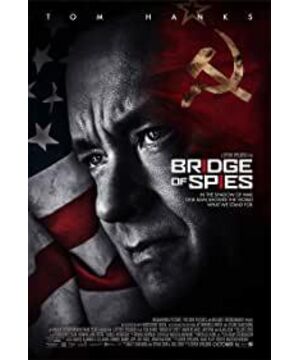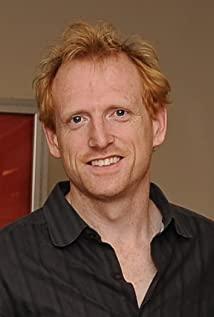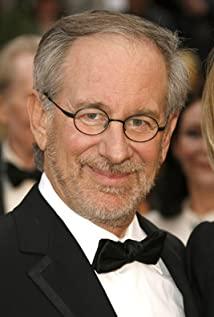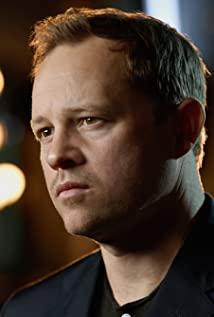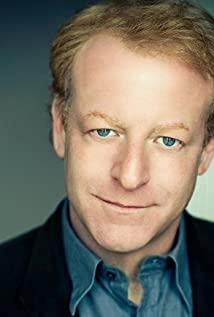Although there is no such thing as the willingness to die after being tortured, nor the generosity of righteousness Ling Ran, the light of humanity shining in the subtleties is enough to make it a moving movie. Below I will summarize some of the most moving scenes.
1. Insisting that
D was originally an insurance lawyer, and strived for the best interests of clients through negotiation and negotiation in different cases. He is strong and confident in negotiation, believes what he believes, and through negotiation, convinces the other party of what he believes. Such a lawyer is naturally an excellent lawyer well-known in the industry. And it was this excellence that led him to embark on a different path in life.
When the Soviet spy Abel was arrested, the U.S. government specially hired a lawyer for him in order to demonstrate "fairness", and he was a well-known lawyer in the industry, D. Of course, everyone knows that everything is only for "show", just for the world to see a gesture. The outcome of the lawsuit goes without saying. As a defense lawyer, D is not only thankless, but also misunderstood by the general public. Even so, D accepted it, and from the moment he accepted it, he did his duty as a lawyer, believed everything his client said, and wholeheartedly worked for his client's best interests. When he questioned the reasonableness of the evidence because of his profession as a lawyer, the CIA agent advised him to defend the matter hastily in a pre-arranged and recognized way, but he categorically refused. He said this conversation: "I'm of Irish descent, you're of German descent, but what makes us all American? There's only one thing, one thing: the rules, we call them The Constitution. We obey the Constitution, which makes us Americans. It's those who make us Americans, so don't tell me there are no rules." When everyone sees Abel as a spy, an enemy, only him, Abel as him the parties, and look at them individually. When everyone made a judgment in their hearts based on their preconceived impressions of Abel, only he, according to the law and the professional ethics of lawyers, fought for the rights that an ordinary person should enjoy for Abel. When everyone, even the judge, advised him to just get by, he was the only one who insisted on defending according to the standard of the law. All of this stems from his belief in rules. It's easy to give up, but hard to hold on, especially when everyone tells you to give up and everyone thinks it's right to give up, it's even harder to hold on. Even though the outcome was decided, D still did his best in sentencing, and successfully persuaded the judge to give up the death penalty and commute the sentence to imprisonment (the vision of this move was also proved later); even though the sentence was decided, D still resisted the pressure of public opinion and went to Washington to serve The petition was commuted; even when the family was attacked, D still stood by his beliefs. Even though the outside world is chaotic and noisy, D always believes in and pursues the rules and fairness that he recognizes. This insistence is touching.
2. Trust
Of course Abel knew that the U.S. government wouldn't really send a lawyer to defend himself, and his attitude was quite calm. He knew that everything would not help and could only be left to fate. However, in his gradual contact, he discovered the difference of D. D's unreserved trust in him and his dedication to help him slowly built a bridge of trust between him and D. Although the contact is limited, Abel also begins to trust D, out of human instinct, trust and rely. When D said that he was going to Washington to make a petition to reverse the situation, Abel took off his glasses, paused, and said only: "you should be careful". Concise and concise enough. I think Abel must have been very moved at the time. He never expected that a lawyer assigned by the US government would help him in this way - not only to save himself from the death penalty, but also to try to reverse the situation after the sentence was pronounced. Abel knew that, based on D's identity, there was absolutely no need for him to do so. D has completed the task assigned by the government and is under the pressure of public opinion. For D's efforts to save him, Abel couldn't repay him, he could only put himself in his shoes and tell the other party. This kind of love between people built on the basis of trust has nothing to do with other things, it comes from nature.
Another episode that nearly brought me to tears was when the hostages were exchanged. The hostage exchange is about to begin, D's negotiation mission is successfully completed, the CIA agent tells D that he can leave, and D insists on accompany Abel through the final journey. On this last stretch, D and Abel spoke softly. D had asked Abel about the possible situation after returning home when he was negotiating with the Soviet representative, at this time D reminded Abel of what he knew about the possibility. It's like a farewell between old friends, there is no crying, sadness and joy, just try to accompany you for a long way and gently remind you of the unknowns you will face.
East Germany was slow to bring the students. On the bridge, both the Soviet Union and the United States were ready to exchange hostages, but D insisted on waiting for East Germany to send the students before the exchange. Neither side cares about an ordinary student with no intelligence value, but Abel knows that D cares, which is what D has always insisted on. Abel said lightly that he didn't mind waiting a little longer, and just like that, he saved a young man. Of course, Abel had absolutely no need to do this, just as D went to Washington to plead for him before. The sooner the exchange takes place, the sooner he will return to his homeland and the sooner he will be free. However, based on trust and gratitude, he chose to wait a little longer.
Finally, Abel also sent D a hand-painted portrait of D as a souvenir and as a thank you.
The relationship between people can actually be so simple and sincere. Even with the intricate political beginnings, the trust, help, and feedback between human beings transcend race, nationality, and ideology. Even if they are buried, they still shine.
3. Sacrificing
Powers, etc. When receiving training, they were told that their mission could not be known by anyone, and even they had to treat themselves as "no mission", and they would crash and commit suicide in the event of an accident. This seems to be a doomed and tragic cause, working hard for the country, but not let it be known, even to the closest people; no matter whether it fails or succeeds, the country will not "know" their effectiveness, because they are destined to stand on the sidelines Unsung heroes in the shadows. I think of those underground workers in the past, those who succeeded were silently hidden in the crowd; those who failed were quietly buried in the dust of history. If not for the infinite love and trust of the country, who would choose to be a person who hides behind the back of victory?
When the Soviet people received Abel, they did not embrace him, but, as he predicted, directly invited him to the back seat of the car. As you can imagine, a review awaits him. After Powers got on the plane, he was full of gratitude and had nowhere to express. Everyone was cold. Powers could only eagerly show his innocence to D beside him. Fortunately, at the end of the movie, both of them were at peace. If the psychological pillar of resistance to torture is the patriotic spirit that lives up to the mission, then what is the support for these people when they face the doubts of their own people? This possible suspicion casts a tragic color on the work they do.
Such a spirit of sacrifice must be awe-inspiring.
After all, the film is about human nature, the trust between people, and the trust between people and countries. I thought of a sentence I read before, probably saying that she has traveled to many countries, and what moved her the most is the kind of common humanity that crosses races and nationalities between people. This is exactly what this film conveys.
PS: There are a lot of small details in the film that take care of each other.
1. At the beginning, D argues with the lawyer of the other party whether a traffic accident is one case that he thinks, or five cases that the other party thinks. Later, when the hostages were exchanged, there was a similar plot. D argued with the other party whether it was one transaction or two transactions.
2. The picture of D defending Abel appeared in the newspaper, and the people who read the newspaper on the train looked at him with hostility and contempt. And when the news of his successful rescue of the American hostages was published in the newspaper, the eyes of the newspaper readers on the train turned into respect. D didn't do anything deliberately, and didn't deliberately change it, he just did what he thought should be done according to his own principles. That's all.
3. On a train in East Germany, D saw youths who were machine-gunned while trying to climb over the Berlin Wall. On the train in New York, he also saw a few young people who climbed the wall. It's just that the circumstances and the ending are very different.
View more about Bridge of Spies reviews


